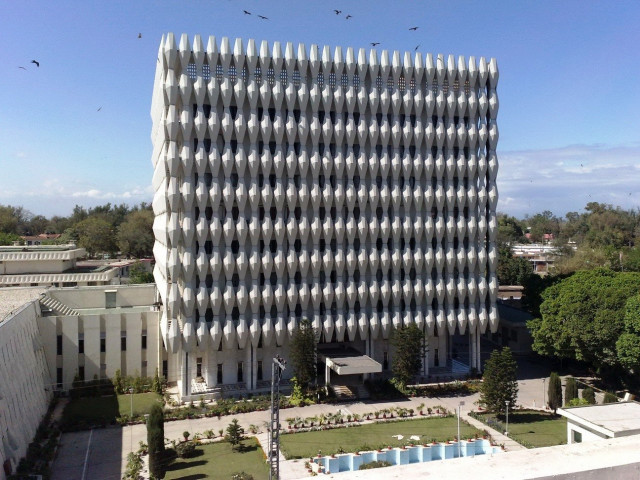Unchecked government borrowing: SBP drives up main discount rate to 14%
Provinces advised to implement revised borrowing limits.

This is the second consecutive increase by the central bank. The rate was increased from 13 to 13.5 per cent in September. The discount rate is the rate of interest charged by the central bank on its loans to other banks and is the economy’s most rudimentary rate of return to which all other interest rates are linked.
In an announcement on Monday, the SBP explained that the increase was meant “to counterbalance the rapid expansion in reserve money and arrest the rising inflation expectations” in the national economy.
Highlighting “relentless government borrowing from the SBP”, the central bank cited a strong correlation between persistent inflation and an increase in net domestic assets of the central bank because of unchecked government borrowing. Worryingly, the central bank warned that double-digit inflation could persist into fiscal year 2012.
According to Hamad Aslam, the head of research at BMA Capital, the SBP was left with no option but to increase its discount rate because of persistent fiscal indiscipline. Aslam explained that inflation is projected to reach 16 per cent this fiscal year which will mean that the government will be unable to generate funds from the private sector with yields below inflation at 13 per cent.
At that rate no one will be willing to lend, said Aslam adding that the rise in the discount rate should increase the yield on government bonds and savings schemes. However, he acknowledged that at a time when the economy is bound to face rising power and food costs, increased interest rates will curtail private investment and suppress growth.
Khurram Schehzad, the head of research at InvestCap, agreed. He said that the decision will have absolutely no effect on inflation. He explained that the current inflation was driven by a rise in food prices and the removal of power subsidies.
He added that monetary policy is not very effective in an economy such as Pakistan because of the absence of leverage and dependence on interest rates. Industries with debt on their balance sheets will only pass on the rise in cost to the consumer, further fuelling inflation, said Schehzad.
The SBP further issued a dire warning to the provinces to keep their borrowing from the central bank in check. A principled decision was taken by the bank’s central board to strictly implement the provinces’ revised borrowing limits and “even stopping payments to the provincial governments”, if required.
According to the SBP, food and electricity prices might be the reason for the surge in inflation but do not fully explain the reason for the persistence in inflation. Instead, government borrowing of Rs266 billion up to November 19 out of a total expansion in reserve money supply of Rs308 billion is responsible for persistently high inflation, the SBP argued.
It further warned that inflation cannot be controlled in the short-term and that the effects of a monetary policy decision are not evident immediately.
Published in The Express Tribune, November 30th, 2010.



















COMMENTS
Comments are moderated and generally will be posted if they are on-topic and not abusive.
For more information, please see our Comments FAQ